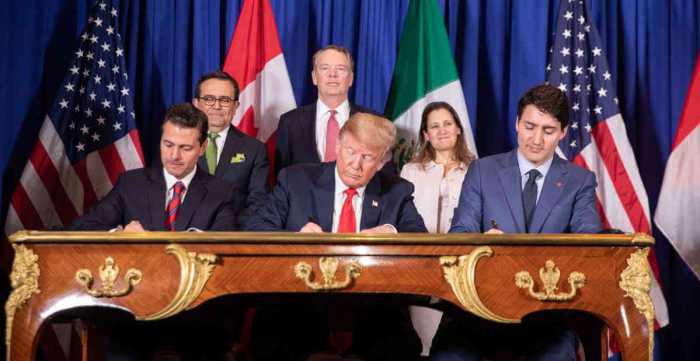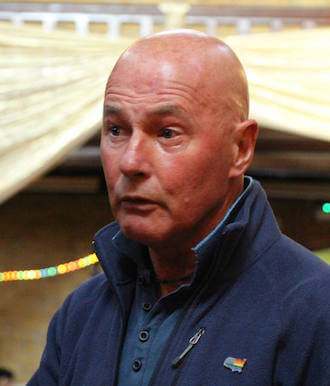Isaiah Washington (r.) and Julian Walker as father and son in director Patrik-Ian Polk “Blackbird.” | RLJ ENTERTAINMENT/ URBAN MOVIE CHANNEL
With “Blackbird,” out gay director Patrik-Ian Polk — co-writing with Rikki Beadle-Blair, also gay — has loosely adapted Larry Duplechan’s celebrated novel about an African-American teenager’s coming of age. Recasting the story from Southern California to Hattiesburg, Mississippi, the film provides a marvelous showcase for newcomer Julian Walker as Randy Rousseau, a young, God-fearing teenager who is grappling with his sexual identity. Randy has fantasies about loving guys, and when he meets Marshall MacNeil (Kevin Allesee), a gay actor who becomes smitten with him, Randy is confronted with reality.
Meanwhile, Randy’s home life is complicated because his mother Claire (Mo’Nique) is still haunted and shaken by her daughter’s disappearance years ago. Randy’s father, Lance (Isaiah Washington), has been absent since not long after the daughter went missing. When Lance reappears, he tries to reconnect with his son at a critical juncture in the teen’s life.
Understated Isaiah Washington is on point; newcomer Julian Walker shines as tentative teen
The film tackles many discussion-worthy issues about sexuality, faith, identity, and self-respect. Washington, who famously became the center of a media storm eight years ago over a slur allegedly aimed at his “Grey’s Anatomy” gay co-star T.R. Knight but has since won praise from GLAAD for his work with the LGBT community, delivers a terrific, understated performance. Washington spoke with Gay City News about the themes of “Blackbird.”
GARY M. KRAMER: “Blackbird” was co-written by Rikki Beadle-Blair, who penned the film “Stonewall,” which you appeared in 20 years ago. Did Rikki prompt you to read Larry Duplechan’s novel to prepare for playing Lance.
ISAIAH WASHINGTON: No, I didn’t want to read it. I like to show up like a block of clay. Rikki didn’t ask me to read it. I would have if he had asked me to. For “Stonewall,” I auditioned for the lead with an Afro wig, eyelashes, and a dress. I looked like my mother. I had men chasing me, but [the film’s director] Nigel Finch didn’t give me the role. I ended up playing an arresting officer with Luis Guzmán. We threw the lead characters in the paddy wagon.
GMK: You gave a miraculous turn in “Blue Caprice” and continue to do strong work in this new film. What is the appeal of indie projects like “Blackbird?
IW: With all the obstacles and odds of being who I am, I have the audacity to be picky. I only want to leave my house for things I think are really cool and progressive, and things that make people think, like “Blackbird.” I want to shake the foundations of a human being’s absolutes. I want people to wake up and see what they think is absolute truth about the world, individual and humanity, only to find out it is not. The audience for this film is underserved. That’s why I’m part of “Blackbird.” A lot of hearts can be healed and minds can be changed, and those people can touch other people.
GMK: Lance is a largely absent father in Randy’s life. But his situation stems from the disappearance of his daughter, a very specific trauma. What can you say about Lance’s role of an absent father, which is a potent topic in the African-American community?
IW: I need to tell stories that are uncomfortable in my community and your community. Lance is an absent father who is not afraid of having a gay son, but struggling with the pain of suffering and guilt of a missing daughter and her mother who lost a child. Lance is a victim of circumstance. He and Claire might still be together had the daughter never been abducted. And if the family stayed together, the son might have come out earlier than he does. Randy is a son with no role model. There is no closure for these characters. It is important for Lance to show up so he can find closure for himself, his daughter, and his son.
GMK: Lance talks candidly and emotionally to his son about homosexuality in a particularly tender scene in “Blackbird.” Why do you think that Lance is so accepting?
IW: He explains that he doesn’t have a problem kissing a man himself. If he and Claire were not together, he would probably be with that man he kissed. Teenagers don’t like having those conversations. It made perfect sense that Lance sees through Randy. Even Randy’s friends see that he’s gay. Lance knows Randy is lying to him, but Randy has to lie because Lance is his father.
GMK: What can you say about the spirituality in the film? Randy is devout, and Claire certainly has her faith and her faith tested. What can you say about Lance’s religious nature?
IW: He’s a tree without a root, a beautiful tree with no foundation. He’s in worker’s attire whenever you see him. He’s toiling in the fields of life, so he can’t walk with the burden of Christ. It’s about his son not calling him Dad. He is worried about returning: What if his wife and his son reject him completely? He has a wife and a child, but the church is ruling his house. Life has beaten him down. He is a man who doesn’t know he is the man of his house.
BLACKBIRD | Directed by Patrik-Ian Polk | RLJ Entertainment/ Urban Movie Channel | Opens Apr. 24 | AMC Loews Village 7, 66 Third Ave. at 11th St. | AMC Empire 25, 234 W. 42nd St. | amctheatres.com


































